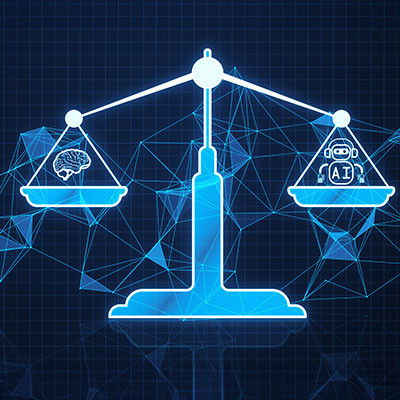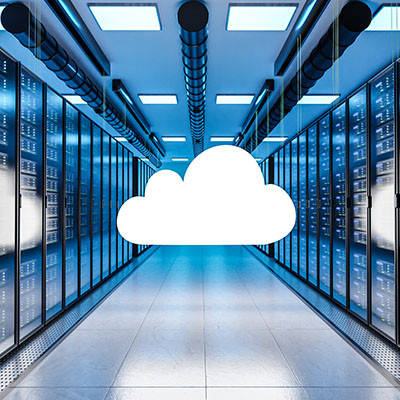Datalyst Blog
Stuff happens, and this stuff can often be bad. That’s an inescapable part of life, especially if you’re trying to run a successful business. That said, the consequences of this bad stuff can usually be minimized—if not mitigated entirely—when you have a proper disaster recovery strategy.
Let’s review what goes into preparing this kind of strategy in the most effective way and what makes it so crucial.
"I don’t need to worry about cybersecurity… my business is too small for hackers to target."
This is one of the most dangerous misconceptions a small business can have. If you believe this, you may not fully understand how modern cyberattacks work. Let’s break down why this mindset can leave your business vulnerable.
Nobody likes getting large support bills from technology companies—especially when they are unexpected. This is the case for both the business owners footing the bill and the employees who might be held responsible for racking up the bill in the first place. This puts SMBs in a bit of an impossible situation; either spend money to keep employees productive, or save money and suffer from productivity issues.
It’s easy to look at IT services (and most technology investments) as an expense. We’re not going to argue against that. Even in our own business, we know we need to pay a lot of money for hardware, software licenses, subscriptions, and internal labor, employee training, certifications, and a whole lot more just to keep things running smoothly for ourselves and our clients.
It also might seem a little funny that an IT services provider is talking about how IT services can help your business be more profitable. At first glance, that might feel sort of like a bakery telling you that donuts are the key to losing weight.
But I have your attention so far, and it’s likely because you understand that modern technology is inherently designed to make you and your staff more effective and productive. It’s not designed to simply be an expense, and if you implement it properly and measure it, much of the time technology can be shown to help organizations do more in less time.
This article explores 13 ways these services can help small businesses save or make more money.
Microsoft's cybersecurity vulnerabilities have been making headlines recently. These lapses in security are causing concern for customers worldwide. The impact of these vulnerabilities is far-reaching. It affects network security and increases the risk of data breaches, causing somewhat of a ripple effect.
More small and medium-sized businesses than ever are seeing AI's potential to transform their operations. However, like any technology, AI has its own set of pros and cons. Let's discuss three major advantages and drawbacks you can expect if using it in your business. Hopefully, it helps you make an informed decision about adopting AI.
I want to pull back the curtains and be honest about something. As an IT professional, I never thought we’d see the day where business owners come to us to ask about the security of their business. For years and years, throughout most of my career, the role of bringing up cybersecurity has been on us, which is fine, but it sort of puts cybersecurity in this sort of “luxury” category. Cybersecurity always seemed to be a “let's put it on the docket for next year” sort of thing for a lot of business owners until just very recently.
With technology being so important for all businesses in at least some capacity, it’s no small wonder that effectively using it (and having someone on-hand to manage it all) is tremendously valuable for any company. This is where a managed service provider (MSP) can be helpful, even for businesses that have a dedicated IT department. All small businesses benefit from working with an MSP.
It shouldn’t be a surprise to hear that the better your relationship is with your employees, the more your business will benefit. Despite this, many businesses today lack trust between their organizational levels. Let’s go over a few simple tips that you can use to help maintain positive feelings amongst your team.
Massachusetts Businesses are Required to Meet Certain Cybersecurity Compliances for Business Insurance
As technology advances, the potential for cyberattacks and data breaches has increased, putting sensitive information and the reputation of a company at risk. Massachusetts has recognized the importance of protecting businesses from cyberthreats and has implemented certain cybersecurity compliances for business insurance. In this article, we will discuss what these compliances entail, why they are necessary, and how businesses can meet them.
I was meeting with an old colleague the other day. We met over Microsoft Teams to just check in and see how they were doing—no real itinerary, just to check in with a familiar face that I haven’t personally talked to in a few years. They had a little trouble getting into Microsoft Teams, since they were used to Zoom. I patiently smiled and helped them through it, and told them “No worries, it’s always the little differences that complicate things!”
At the time, I said this just to be empathetic. At first, the nerdy computer-geek part of my brain told me that the process to get into a Zoom meeting vs a Teams meeting, from their perspective, is exactly the same. But after the call, I really thought about this small interaction, and you know what? Things have gotten complicated.
Cybercrime has grown rapidly over the last several years. We’ve seen more and more businesses get hit by crippling ransomware, data breaches, and other types of attacks. End-users are inundated with common, but deadly phishing attacks and other threats that are so easy to fall for, even IT experts could get tricked. Let’s look at these trends for 2023, and how your business can prepare for them.
Is your Rhode Island business looking for an IT partner it can trust?
“Good help is so hard to find,” or so the saying goes, but when it comes to IT support and services for your Rhode Island business, it certainly doesn’t have to be. Let’s go over a few signs that it’s time to turn to a trustworthy IT partner, and how to go about finding the right one.
The business world is always ebbing and flowing with new concepts, ideas, and strategies in the attempt to innovate. The more technology can be used to do things that help a business run, the more processes can be automated bringing a layer of efficiency that isn’t possible without it. Let’s take a brief look at some of the technology trends that small businesses will be confronted with in 2023.
Cybersecurity is critically important to businesses of all sizes, which means that all businesses need to put forth a concerted effort to ensure their security is locked down. This, in turn, will require someone to take point on developing a cybersecurity-focused internal culture.
Who better to do this than the boss?
When we say “improve communications” you probably are expecting an article about telephone systems or which video conferencing platform works the best. Normally, you’d be right, but today we decided to briefly go over four ways that you can foster better communications between management and their employees inside of your business.
I hope I don’t have to tell you how important your business’ data is to its continued survival, just as I hope I don’t need to explain why this makes this data a priority to protect, regardless of your business’ size. What I do want to explain is the concept of the 3-2-1 Rule and how it pertains to your data backup, and why we would recommend that one for your business’ purposes.




















